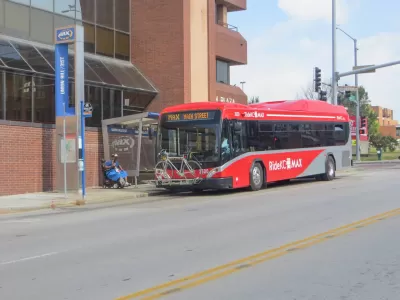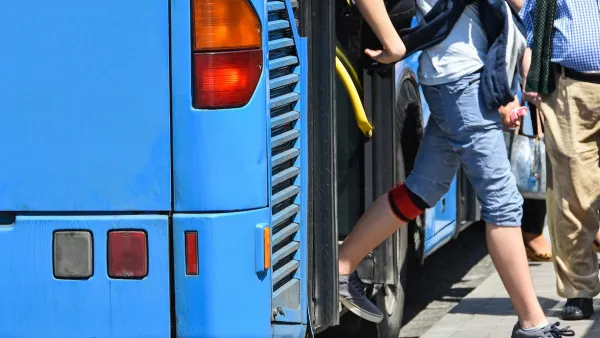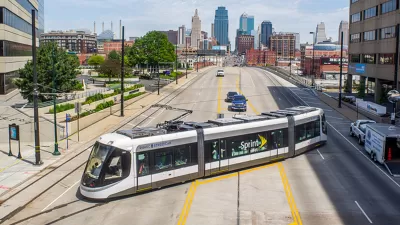Kansas City, Missouri will be the largest U.S. city to operate a fare-free system that officials say will make transit more accessible.

As reported earlier in the month, the city council of Kansas City, Missouri voted to make buses in the city free. Laura Bliss provides follow up coverage to explore the potential of free transit in the city. The plan will cost $9 million annually, but officials say free transit is a worthy investment. "By increasing mobility overall, KC is looking to boost economic activity. And proponents of the plan say that helping marginalized communities move around more easily will translate into deeper benefits," says Bliss.
The plan has skeptics who argue that free fares will not necessarily boost ridership, especially if infrequent service and network gaps are an issue. Bliss also discusses other fare-free transit programs in the U.S. and European cities, where the outcomes have been a mixed bag.
Still, Kansas City is taking the lead in trying out new and innovative transportation options, as it has in the past and even if they were not always successful, Bliss points out. "At a time when public transportation systems face greater competition from ride-hailing services and other tech-enabled tools—and with climate change placing new urgency on shifting travelers out of cars—the City of Fountains has shown an unusual willingness to experiment with new ideas, transit experts say."
FULL STORY: Why Kansas City’s Free Transit Experiment Matters

Maui's Vacation Rental Debate Turns Ugly
Verbal attacks, misinformation campaigns and fistfights plague a high-stakes debate to convert thousands of vacation rentals into long-term housing.

Planetizen Federal Action Tracker
A weekly monitor of how Trump’s orders and actions are impacting planners and planning in America.

San Francisco Suspends Traffic Calming Amidst Record Deaths
Citing “a challenging fiscal landscape,” the city will cease the program on the heels of 42 traffic deaths, including 24 pedestrians.

Defunct Pittsburgh Power Plant to Become Residential Tower
A decommissioned steam heat plant will be redeveloped into almost 100 affordable housing units.

Trump Prompts Restructuring of Transportation Research Board in “Unprecedented Overreach”
The TRB has eliminated more than half of its committees including those focused on climate, equity, and cities.

Amtrak Rolls Out New Orleans to Alabama “Mardi Gras” Train
The new service will operate morning and evening departures between Mobile and New Orleans.
Urban Design for Planners 1: Software Tools
This six-course series explores essential urban design concepts using open source software and equips planners with the tools they need to participate fully in the urban design process.
Planning for Universal Design
Learn the tools for implementing Universal Design in planning regulations.
Heyer Gruel & Associates PA
JM Goldson LLC
Custer County Colorado
City of Camden Redevelopment Agency
City of Astoria
Transportation Research & Education Center (TREC) at Portland State University
Jefferson Parish Government
Camden Redevelopment Agency
City of Claremont





























